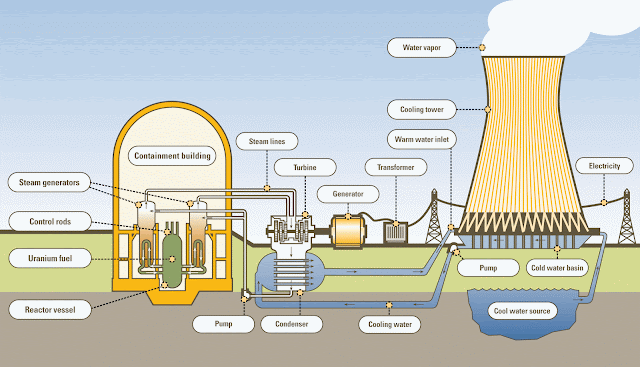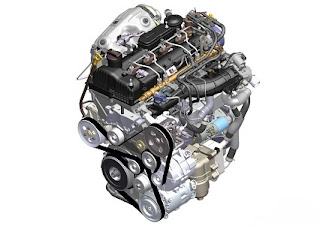Merits of Atomic Energy:
✔ Produces large amount of Energy
Nuclear reactions unleash 1,000,000 times additional energy, as compared to hydro or wind energy. Hence, an over sized quantity of electricity are often generated. Presently, about 10-15% of the world's electricity is generated through energy. Did you recognize that one kilo of uranium-235 about produces the maximum amount energy as 1,500 tons (1,500,000 kilograms) of coal?
✔ 'Green' Energy
The biggest advantage of this energy is that greenhouse gases (carbon oxide, methane, ozone, chlorofluorocarbon) don't seem to be discharged throughout a action. Greenhouse gases area unit a significant threat within the current situation, as they cause heating and temperature change. As there's no emission of those gases throughout action, there's little impact on the surroundings.
✔ No pollution
The burning of fossil fuels ends up in production of carbonic acid gas and smoke. it's a menace to the surroundings in addition as human life. Production of energy doesn't emit smoke, hence, there's no direct pollution. However, disposal of radioactive material could be a major issue these days.
✔ Fuel Independence
Nuclear reactors create use of U as fuel. Fission reaction of a little quantity of U generates an over sized quantity of energy. Currently, the reserves of U found on the planet area unit expected to last for an additional one hundred years. Secondly, victimization this energy will create several nations energy freelance, and not enthusiastic about those unearthing fossil fuels.
Demerits of Atomic Energy:
✘ Radiation
Accidental unleash of harmful radiation is one in every of the most important drawbacks of energy. The fission method releases radiation, but, is controlled in an exceedingly reactor. Now, if these safety measures fail, the radiation might are available in contact with the surroundings, leading to severe harm to the scheme and loss of life.
✘ nonrenewable
Although they manufacture great deal of energy, nuclear reactors depend upon U, that is AN exhaustible fuel. Its extinction will once more cause a grave downside. Once exhausted, the reactors are of no use, can ought to be ending, however can stay occupying massive space of land, and contaminating the surroundings.
✘ Developing Nuclear Weapons
This energy are often used for production and proliferation of nuclear weapons. Nuclear weapons create use of fission, fusion, or combination of each reactions for harmful functions. they're a significant threat to the globe as they'll cause a large-scale devastation. Their effects are often ascertained for several generations (e.g., atomic bombings of Hiroshima and Nagasaki).
✘ large Building value
Though great deal of energy are often made from a atomic power plant, it needs massive cost of capital. Around 10-15 years area unit needed to develop one plant. it's not terribly possible to create a atomic power plant. Secondly, one cannot ignore the actual fact that the nuclear reactors can work as long as U is accessible.
✘ Nuclear Waste
The waste made once fission reactions contains unstable parts, and is very hot. it's terribly dangerous to the surroundings in addition as human health, and remains therefore for many years. It desires skilled handling and may be unbroken isolated from the living surroundings. The radiation of those parts reduces over a amount, once decaying. Hence, they need to be rigorously hold on and disposed. it's terribly troublesome to store hot parts for a protracted amount.
✘ atomic power Plant Accidents
There are 2 most fatal atomic power plant accidents to date: the Chernobyl disaster that occurred at the Chernobyl atomic power Plant (1986) in state, and therefore the Fukushima Daiichi nuclear disaster (2011) in Japan. great deal of radiation was discharged within the surroundings once these incidents, resulting in fatalities, harm of nature, and land. One cannot deny the chance of repetition of such disasters in future.
✘ Transport of Fuel and Waste
Transport of U fuel and therefore the radioactive material is extremely troublesome. U emits some quantity of radiation, and hence, has to be handled with care. Secondly, the nuclear waste made is additional risky and wishes further protection. All transportation means that ought to follow the international safety standards. though no accidents or spills area unit reportable as of currently, the transportation method continues to be difficult.










